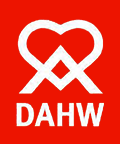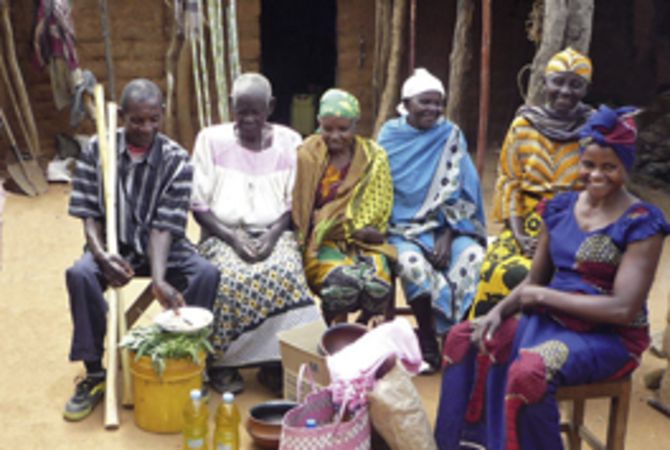Her smile is the first thing you see. There are a dozen people on the village square, but this young woman stands out from the crowd. Pretty face, these eyes and the smile. Her dress in which she looks so elegant screens what nobody would expect, as long as she sits there.
Denied and abandoned
Mary M. suffers from polio. In rich countries this problem no longer exists thanks to oral vaccination. But here in Hombolo, in the middle of Tanzania, this disease does still exist. The virus destroyed Mary’s spinal cord, unformed and immobilized her legs.
There are good reasons for hiding a disability from other people’s stares: stigma, that makes you feel like an “incomplete” person, is widespread. Mary made her own experience. Almost six years ago her boyfriend, who had always claimed to love and that he wanted to marry her, suddenly turned her down.
“When I told him that I was pregnant, he broke off the relationship. Today, he even denies that he had a relationship with me or that he is the father of our son. Everybody in the village knows the truth but they believe him rather than me, a disabled woman.”
Mary says this without any bitterness, her smile does not lose its expression at any time. She knows that prejudices can be overcome only slowly and with great difficulty. However, this is one reason why she regularly meets up with her self-help group on the village square.
Disabilities are stigmatizing
Burchard Rwamtoga is joining the group today. The social worker from DAHW German Leprosy and Tuberculosis Relief Association supports several such groups in the country. People with disabilities like Mary or Johann meet up there, people who have feet mutilated by leprosy and always wear closed shoes so that nobody sees them.
Johanna hides her disability. Photo: Miesen / DAHW
“Stigma and discrimination are uniting them, because they do not fit into the usual scheme of things”, says Burchard. In his experience “usual” means that one man is more worthy than one woman and a person who is able to work is more worthy than a disabled one, . Diseases like leprosy and disabilities are perceived as punishment by God; as a consequence the affected people are being avoided or even excluded.
“Only together are we strong enough to lead an independent and self-reliant life”, Mary stresses her message. The group provides her protection from hostility and helps her when it comes to organizing her daily routine. Many things, usually very simple one, are not evident for people like Mary.
Independence through micro-credit
Example: A job that enables Mary to care for herself and her son. Mary is a very good tailor, but she had never had a chance to prove it. She visited a tailor time and time again in her three-wheeler, which she moves with just her hand. But he did not give her any work that she could handle. Together with social worker Burchard they came up with the idea of opening her own tailor shop. Well, shop might be overstating it, but at least she could work at home, sew the clothes for clients and support herself. Burchard granted his permission for her to receive a DAHW micro-credit, which enabled Mary to get a sewing machine and materials until she had enough clients.
Mary obtains independence with her three-wheeler. Photo: Gemballa / DAHW
All other members of the self-help group in Hombolo received similar support. With the help of DAHW all of them found jobs e.g. sales assistant at a newsstand, a job in a pet shop, production of earthenware or farming. Basically all types of work that even neighbours, who are not disabled, do. And they do not do it any better or worse than them.
The difference is within the groups: They do not only tackle discrimination, but ask for help from authorities; and they help each other. If one person from the group needs a tailor, they will go to Mary. Corn, vegetables, a goat, a hen or an earthenware dish will be bought from other members. “Together we will become strong”, is their motto, which they adapted from Burchard.
Together they become strong
Today the DAHW social worker of is listening to people’s concerns. There are always problems that they ca not solve without support. It is not just about money for repairs or small investments, but often about very simple applications to authorities as hardly anybody in the group attended school. Another problem might be the fact that there is simply no money to pay for the obligatory school uniform, which is when the help of DAHW is required.
Burchard´s advice is always welcome. Photo: Miesen / DAHW
Later on, everything is discussed and slowly everybody leaves the village square. They go home or to work. Mary is going too, moving as she always gets around, on her hands as she ca not move her legs. In an elegant way, similar to the first impression of her, she climbs onto her three-wheeler and starts to pedal with her hands. As she was leaving Burchard, he noticed that her three-wheeler had worn wheels and she could hardly ride. Even in a situation such as this, donations from Germany can help.
Overview Annual Report 2011



